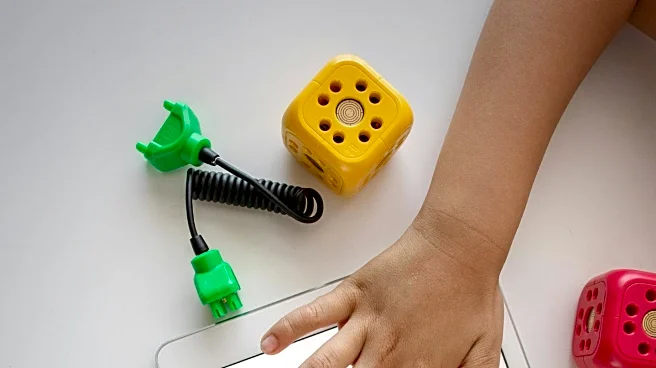What's Happening?
Recent reports indicate a significant decline in children's reading habits, with screens being a major factor. Parents and educators have observed that children are less inclined to read for pleasure, preferring digital entertainment. The COVID-19 pandemic
exacerbated this trend by increasing reliance on virtual learning, which often lacked comprehensive literacy instruction. Additionally, the shift towards phonics-heavy education has reduced focus on reading comprehension and critical thinking. This decline in reading interest and skills poses long-term challenges for children's vocabulary development and overall literacy.
Why It's Important?
The decline in reading among children has profound implications for their educational and cognitive development. Reading is crucial for vocabulary expansion and comprehension skills, which are essential for academic success and informed citizenship. The trend threatens to create a generation less equipped to engage deeply with texts, potentially impacting their ability to think critically and understand complex concepts. This issue also highlights the need for balanced educational approaches that integrate phonics with comprehensive reading strategies to foster a love for reading.
What's Next?
Educators and parents are encouraged to find ways to integrate reading into children's daily routines, emphasizing the importance of reading for pleasure. Schools may need to reassess their literacy programs to ensure they provide a balanced approach that includes both phonics and reading comprehension. Public libraries and community programs can play a vital role in promoting reading through events and resources. Addressing this issue requires collaboration between educators, parents, and policymakers to create environments that support literacy development.


















